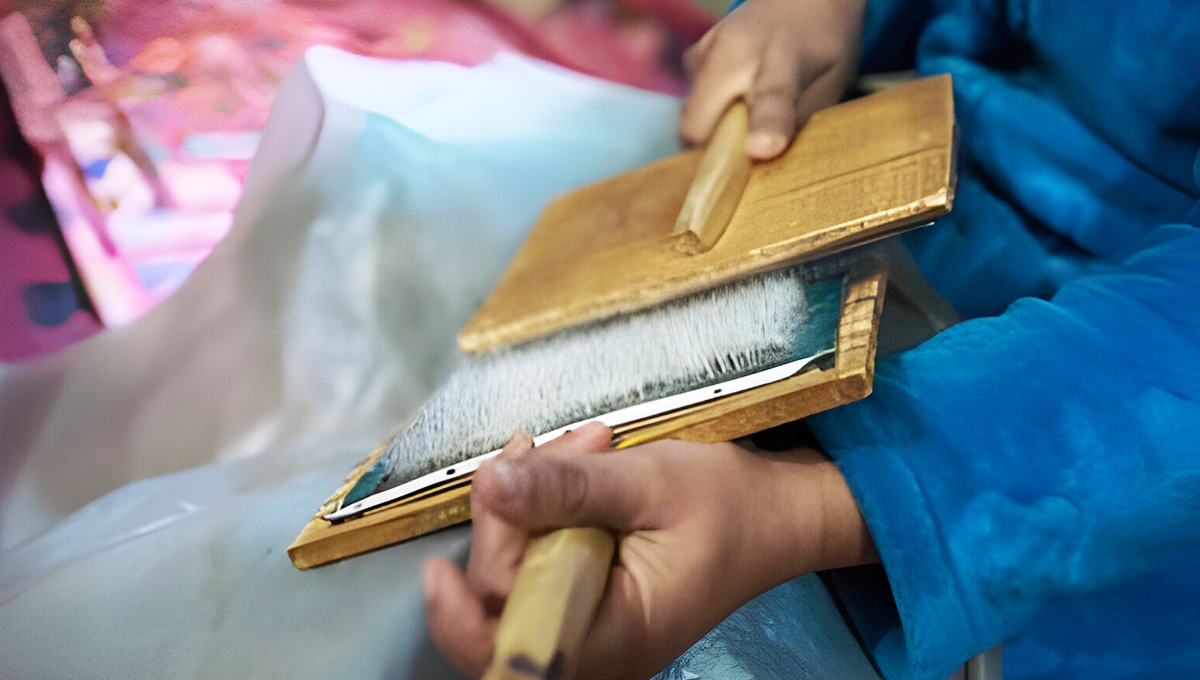In the world of interior decor, sustainability has become a crucial factor for many consumers. Handmade Moroccan rugs stand out not only for their aesthetic appeal and cultural significance but also for their eco-friendly and sustainable qualities. This article explores how these artisanal creations align with environmentally conscious practices, making them an excellent choice for those looking to beautify their homes responsibly.
–Embracing Eco-Friendly Materials :
Handmade Moroccan rugs are typically crafted from natural materials, including high-quality wool, cotton, and sometimes silk, which are all renewable resources. The sheep’s wool, often used in these rugs, is sourced locally, reducing the carbon footprint associated with transportation. Furthermore, since wool is biodegradable, Moroccan rugs offer a sustainable option that minimizes environmental impact when they eventually reach the end of their long life.
–Traditional Techniques that Reduce Environmental Impact :
The artisans who create Moroccan rugs use techniques that have been passed down through generations. These methods are inherently low-tech and require minimal energy consumption, contrasting sharply with the mass production processes used in modern textile manufacturing. The hand-operated tools and looms used in the creation of Moroccan rugs ensure that the production process remains environmentally low-impact.
–Natural Dyes and Their Benefits :
Many Moroccan rugs are dyed using natural substances extracted from plants, minerals, and even some insects. These natural dyes are not only sustainable but also less harmful to the environment compared to synthetic dyes, which often contain harmful chemicals and contribute to water pollution. By using natural dyes, Moroccan rug artisans help preserve both the local ecosystem and the broader environment.
–Supporting Sustainable Practices in Communities :
Buying handmade Moroccan rugs supports sustainable practices at the community level. The rug-making process is integral to the economic stability of many Moroccan families and communities. By purchasing these rugs, you contribute directly to an economic model that supports sustainable, artisan-based communities rather than industrial manufacturing.
–Longevity and Durability :
Moroccan rugs are known for their durability. A well-made Moroccan rug can last for decades, even in high-traffic areas, making them a more sustainable choice than rugs that need frequent replacement. The longevity of these rugs means that they contribute less to consumer waste, as they do not need to be replaced as often as less durable alternatives.
–Tips for Purchasing Sustainable Moroccan Rugs :
- Verify the Materials: When purchasing a Moroccan rug, ensure it’s made from natural materials like wool or cotton. Avoid rugs that incorporate synthetic fibers.
- Ask About the Dyeing Process: Inquire whether the rug uses natural dyes as part of its creation process, which is more environmentally friendly.
- Choose Reputable Suppliers: Opt for suppliers known for their ethical practices and direct relationships with artisan communities.
- Consider the Rug’s Lifespan: Invest in a high-quality rug known for its durability, ensuring that you won’t need to replace it frequently.
Handmade Moroccan rugs represent a fusion of sustainability, functionality, and artistic expression. Their eco-friendly materials, traditional crafting methods, and the use of natural dyes make them an exemplary choice for environmentally conscious consumers. By choosing a handmade Moroccan rug, you are not only enhancing your home with a piece of Moroccan culture but also contributing to a more sustainable and ethical world.


